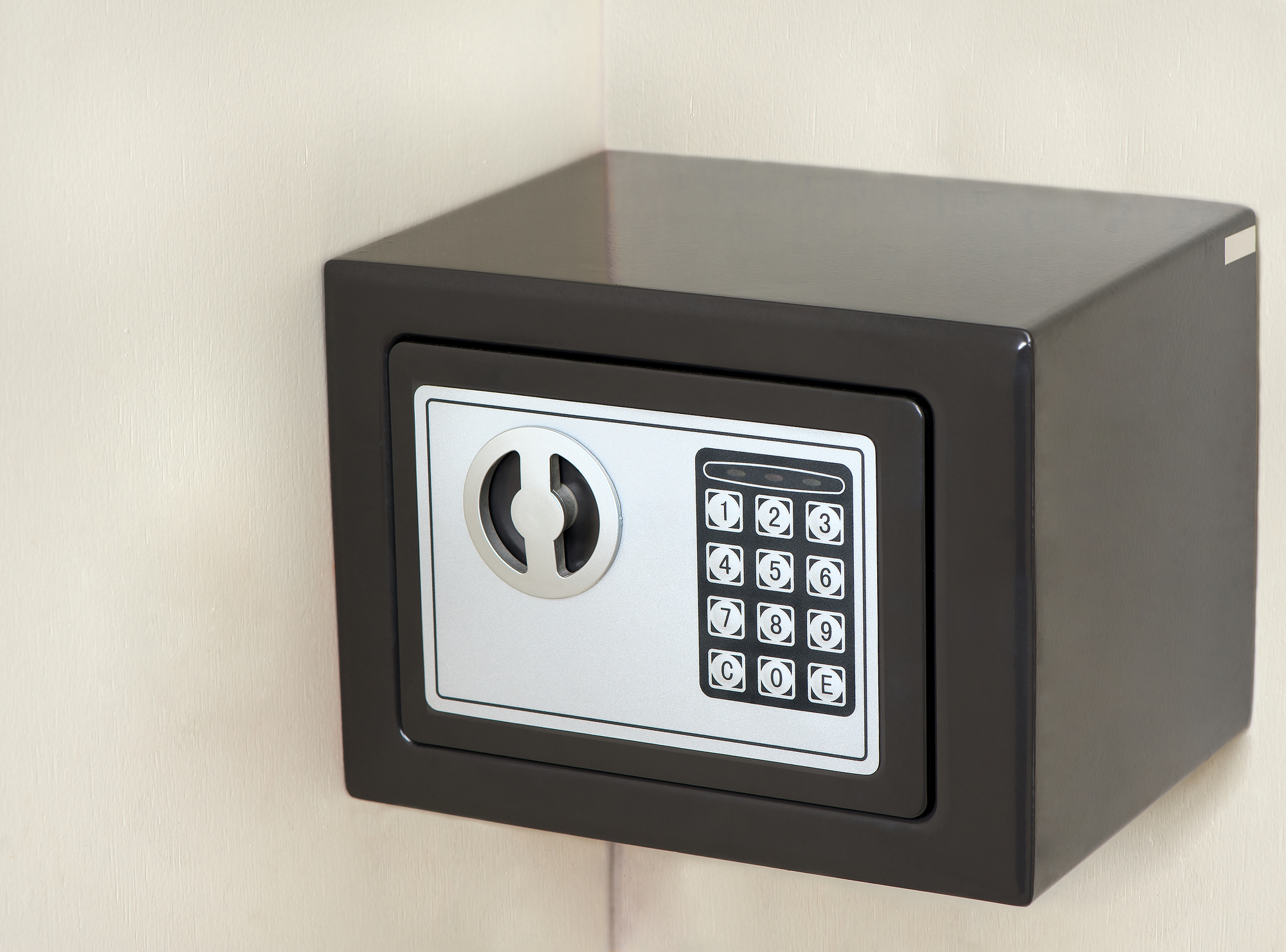Residential safes can add a great deal of physical residential security – not to mention peace of mind – for households that contain valuables like jewelry, heirlooms, or classified documents. In this blog entry, the home safe and residential lock installation team here at Green Locksmith Daytona will detail some excellent tips for installing a safe within your home.
Burglar Protection
Burglars make all their money by outthinking homeowners. Burglars are master scholars of human behavior and vulnerability, utilizing this knowledge to their advantage, and our disadvantage. Burglars first learn where valuables are kept – as nearly 3 quarters of burglars questione in a study saying that the first place they look is the master bedroom. Protect against burglars by keeping valuables in a safe in a hall closet, the floor, or behind artwork. Install motion detector lights outside your property. Make sure all windows are locked, and all door locks are strong, functional, and up-to-par.
Water Risk Reduction
Garage doors are considered a point of vulnerability especially during storms, as they can blow open and allow water to enter your property. Garage doors even allow for water seepage under the door gap, as they are usually just over ground level. Don’t place your safe in your garage, as a flood could damage it’s contents. Basements are also a major flood risk. Floodwaters can easily damage safes held in basements, and water can easily enter most submerged safes. Always install safes over ground level. Basements that don’t have flooding risks might still have moisture issues, and high moisture can easily damage precious documents, electronics, guns, or other valuables kept in safes. If you insist on storing your safe in your basement, make sure it’s flood proof, install a dehumidifier, and regularly check your safe and it’s contents.
Safe Risks and Children
Don’t keep your safe in any area where it can easily be found by your children. Most parents don’t think to protect their safe code or password from their children – or even sometimes leave their safe open with their children around. Children might not care about heirlooms or documents in safes – however, if you keep firearms in your safes, it’s essential that your children don’t have any access to them.
Safe Installation Areas
Safes are purchased to store and protect belongings that are only utilized from time to time – but sometimes they are used to purchase items that might be needed in a hurry, like jewelry or a gun. Safe location safety requires that the safe position shouldnt be totally obvious to anyone, but is still easy enough for the homeowner to access in a hurry. Don’t keep safes in attics or upper floors that require climbing a great deal of stairs, or in basements under heavy boxes. Try to camouflage the door of any hidden safe, but don’t block it with a ton of heavy items that will take too long to move away if you’re in a hurry.
